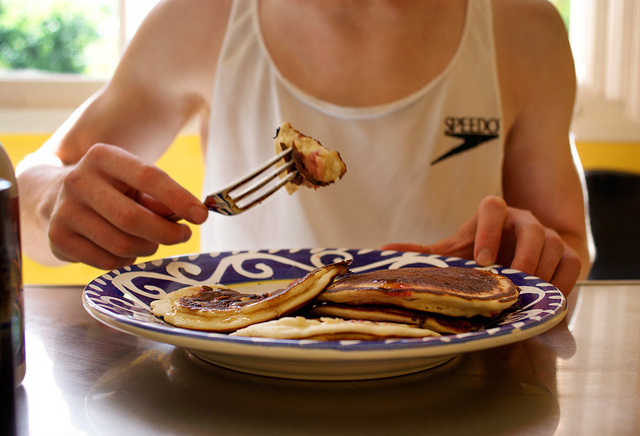
With media, advertising and social pressure facing teens each day—especially teen girls—that tells them how to look and act a certain way, it’s no wonder many of them are dieting. More than 30 percent of girls who are a healthy weight will try to diet; half of all adolescent girls will try a diet and one quarter of all teen boys will do the same, according to the National Institute on Health.
The teens who try dieting are more likely to have poor self-esteem, body issues, and feel a lack of control over their lives. Diet trends may include skipping meals, eating too little, purging, cleansing or not eating proper/well-rounded meals.
Image Sarah Dinu
Dangers of Dieting
Dieting can be especially dangerous for teens because their bodies are still growing and their brains are not yet completely developed. Along with developmental risks, dieting can also lead to binge eating—a person who has deprived the body of nutrients and tasty food is likely to go completely in the other direction and indulge themselves on rich food to satisfy their palate. If this habit sticks, it can lead to weight gain, obesity and heart problems.
Diet pills are another danger to be mindful of, especially because they can be purchased over-the-counter making them easily accessible to teens. Most diet pills reduce appetite and suppress hunger so a person eats less, even if their body needs food energy (which would be the case for a growing teenager).
Dieting is also dangerous for mental health. It is best to treat body image and self-esteem issues with counselling, exercise and healthy eating, rather than with strict dieting.
Solutions for a Healthy Body and Lifestyle
Of course, diets do work for some teens and in some cases, they may be necessary (if recommended by a nutritionist, doctor or other health care professional). If this is not the case, the best alternative to dieting? Adopting a healthy lifestyle. This can be challenging for some, however, so it’s best to start with a few simple steps. Eating regular meals—and never missing breakfast—and filling your plate with healthy foods will keep your tummy full and taste buds satisfied. Work to incorporate colorful foods into your diet and eat until your hunger is satisfied, instead of finishing everything on your plate. Another simple step is to pre-make healthy snacks, like apples with peanut butter, bags of cashews, almonds and raisins or a small fruit salad and pack them with you on-the-go. Don’t deprive yourself of the foods you love! And remember, the most important thing is that you feel happy, healthy and confident in yourself—from the inside-out.
Featured image Laura Lewis



